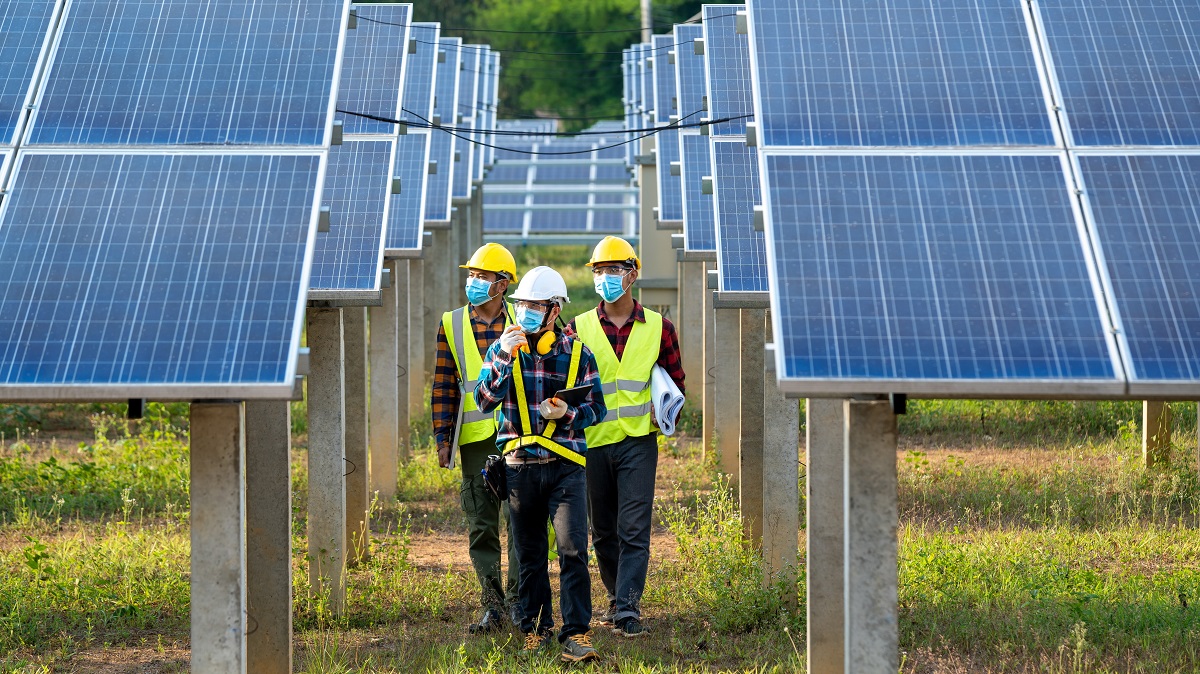Solar Energy Support Energy Access in Developing Countries

Solar energy plays a critical role in supporting energy access and addressing energy poverty in developing countries by providing clean, affordable, and sustainable electricity solutions to off-grid and underserved communities. Here's how solar energy supports energy access in developing countries:
Off-Grid Solar Solutions: Solar energy enables off-grid communities in rural and remote areas to access electricity where traditional grid infrastructure is unavailable or unreliable. Off-grid solar solutions, such as solar home systems, pico-solar lanterns, and solar microgrids, provide decentralized and independent power sources for lighting, mobile charging, cooking, refrigeration, and productive uses, improving living standards and enhancing quality of life for rural households and businesses.
Mini-Grid Development: Solar mini-grids offer scalable and cost-effective electricity solutions for communities with limited grid connectivity, enabling access to reliable and affordable power for residential, commercial, and productive activities. Solar-powered mini-grids combine solar photovoltaic (PV) generation with energy storage and smart grid technologies to provide round-the-clock electricity supply, support economic development, and empower local communities in underserved areas.
Solar Water Pumping: Solar energy powers water pumping systems for irrigation, drinking water supply, and agricultural productivity in off-grid and remote areas, where access to water resources is limited or costly. Solar water pumping solutions, such as solar-powered pumps and drip irrigation systems, enable farmers to cultivate crops, increase yields, and improve food security, contributing to rural development and poverty alleviation.
Healthcare and Education: Solar energy supports energy access in healthcare facilities, schools, and community centers, enabling essential services such as lighting, refrigeration, medical equipment, communication, and educational resources. Solar-powered clinics, schools, and telecommunication centers improve access to healthcare, education, and information technology, enhancing social development outcomes and human well-being in underserved communities.
Clean Cooking Solutions: Solar energy supports clean cooking solutions by providing solar cookers, solar ovens, and solar-powered stoves for households and communities, reducing reliance on traditional biomass fuels such as firewood, charcoal, and kerosene. Solar cooking technologies improve indoor air quality, reduce respiratory illnesses, and mitigate environmental degradation associated with biomass fuel use, particularly among women and children in rural areas.
Economic Empowerment: Solar energy fosters economic empowerment and livelihood opportunities by supporting small-scale enterprises, income-generating activities, and entrepreneurship in off-grid and underserved communities. Solar-powered businesses, such as solar charging stations, solar kiosks, and solar-powered appliances, create jobs, stimulate local economies, and empower women and youth to participate in economic activities and community development initiatives.
Climate Resilience: Solar energy enhances climate resilience and adaptation in developing countries by providing renewable energy solutions that are less vulnerable to climate-related hazards, such as extreme weather events, droughts, and floods. Solar-powered infrastructure, such as resilient solar microgrids and off-grid solar systems, ensures energy access during emergencies and disasters, supporting disaster preparedness, response, and recovery efforts in vulnerable communities.
Overall, solar energy plays a transformative role in expanding energy access, promoting sustainable development, and improving livelihoods in developing countries, empowering communities to overcome energy poverty, achieve socio-economic progress, and build resilient and inclusive societies. By leveraging solar energy solutions and innovative financing mechanisms, countries can accelerate progress towards universal energy access and the achievement of the United Nations Sustainable Development Goals (SDGs), contributing to poverty reduction, social equity, and environmental sustainability on a global scale.
Thank you,